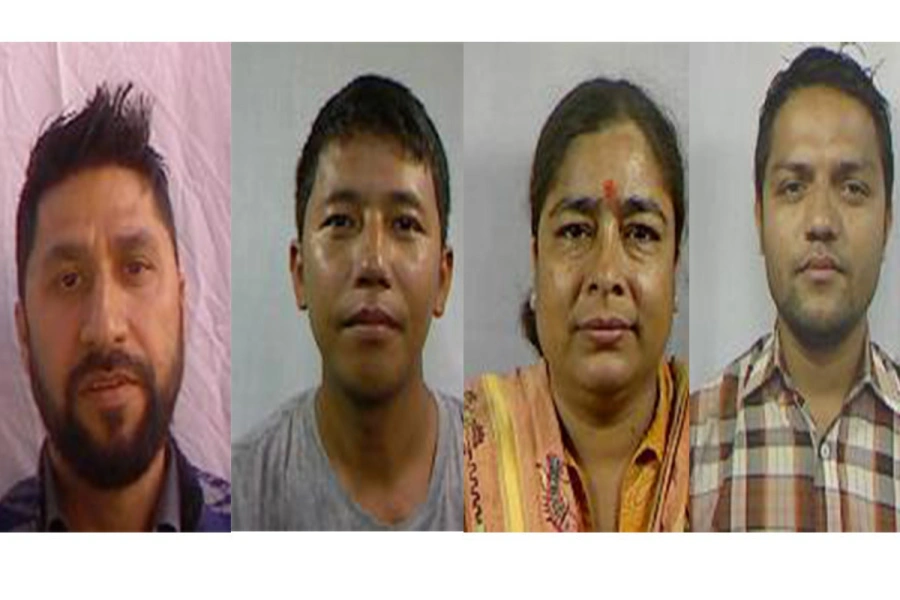PANCHTHAR, Aug 11: Conflict victims have urged the government to review the proposed amendment related to transitional justice stating that the bill favors the guilty and is discriminatory against the victims.
If this bill is passed, it is going to ‘purge’ the guilty and leave the victims without justice, the victims argued adding that ‘they will not let it happen’.
“This draft does not address the concerns of the victims. It is not just,” said Suman Adhikari, advisor and central president of Sajaha Chautari, an association of conflict victims. “We are doubtful also because they are drafting it in a hurry,” he added.
The victims have also expressed reservation against the proposal to change the name of the existing acts related to the transitional bodies. One of the acts is named Truth and Reconciliation Commission Act. But the ruling coalition government has proposed to change the name of the act to ‘act to address transitional justice’.
Victims of Ilam, Jhapa, Panchthar and Taplejung have raised strong voice against the government’s ‘game’ deny them justice. “If the draft is amended, we will take it to the streets. We will not stay quiet,” Adhikari stated.
Conflict victims threaten to ask UN to intervene in TJ process

Speaking at a program held in Fidim of Ilam recently, the victims of the four districts said that the draft has treated cases of human rights violation very lightly. Except for grave human rights violation cases, others are being ‘overlooked’, they accused.
“The proposed draft only considers very severe cases as crime while others are being overlooked. This is not justice. Burglary, encroachment of land, seizing of property or displacement of victims due to several reasons have not been taken seriously,” Adhikari noted. “Even the crimes like abduction, physical and mental injuries have not been listed under serious crimes. These have been categorized as ‘other’ cases of human rights violation,” he added.
As per the draft, murder, disappearance, torture and rape and cases of sexual violence have been mentioned as ‘serious crimes’. The victims have stated that those being categorized as serious crimes are fine but this list must include many other offenses as well.
“The government did not hold discussion with us while drafting the proposed bill. Should not there be representation of the victims? We are really alarmed that it is being drafted in so much hurry,” Adhikari said.
The victims state that the new draft will serve the interest of the government and the rebels. The innocent people who were affected by the conflict are simply not going to get any relief.
The government has lately asked for the advice of the victims when the draft is being finalized. But the victims have complained that the time given for this is very short. According to Adhikari, they have been asked to provide their advice within next week.
“We have been given only seven days for this. This is not a sufficient time for us,” he said.
The government had proposed the draft bill about two months ago. But since the victims were not happy with it, it has not been presented to the parliament though. Stating that the draft is discriminatory, 234 victims had filed a writ petition at the Supreme Court. The apex court had then given a verdict in favor of the victims saying that there cannot be blanket amnesty in cases of gross human rights violation. It also said that the draft cannot be finalized without a proper discussion with the victims.
The victims have taken the government’s initiative to seek their views positively. Earlier, the existing Act had been prepared without any consultation with the victims.
A total of 3,093 cases of disappearance have been filed from across the country at the Commission for the Investigation on Enforced Disappeared Persons (CIEDP). Meanwhile, at the Truth and Reconciliation Commission (TRC), a total of 62,000 cases have been filed. For this, the commission has seven offices in all seven provinces.
The victims have demanded more time to register their advice. Even though the new deadline is going to be over soon, they are collecting advice from 11 different areas of the country, Adhikari said. “Some victims have strong differences against the proposed draft. We are collecting suggestions from 11 places,” he said.
Also according to Bikash Basnet, program coordinator of Advocacy Forum, which has been working for transitional justice, the draft amendment proposal must be reviewed.
“If it fails to meet the international standard of justice, it might be problematic in the days to come,” he said.





































